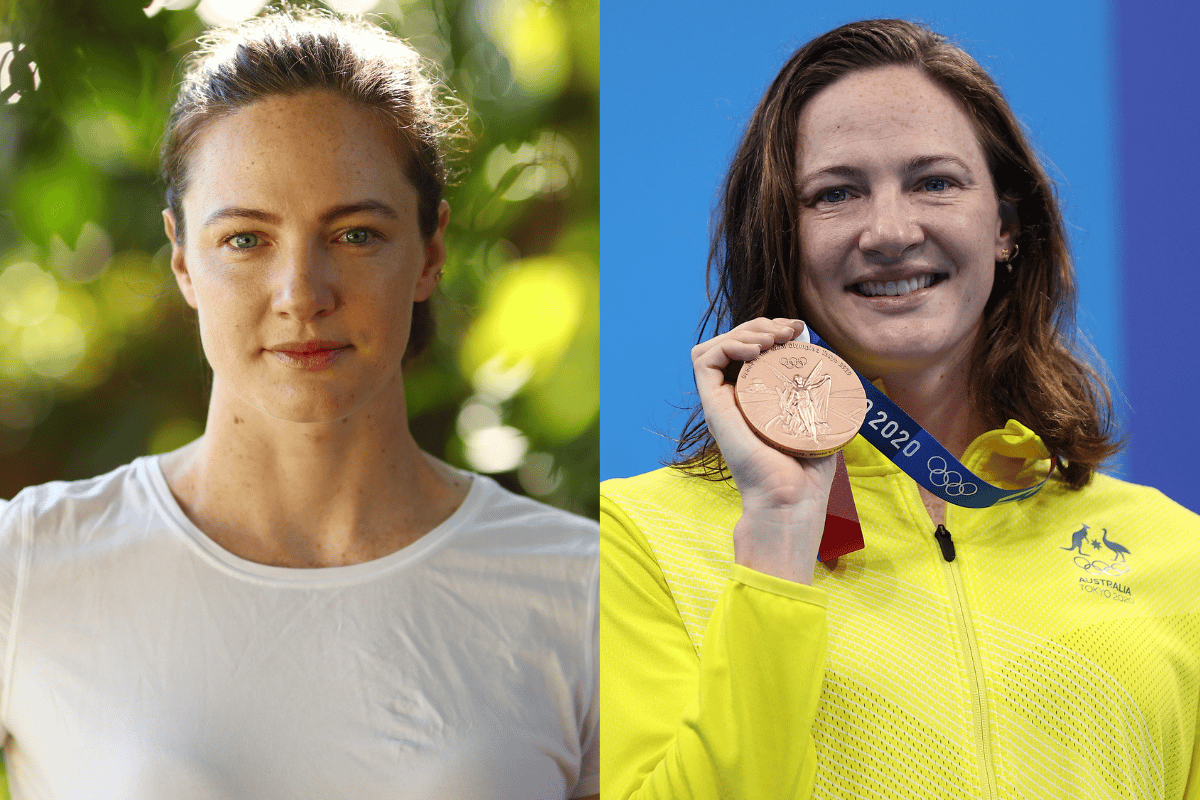
For Olympic swimmer Cate Campbell, her relationship with her body drastically changed from the age of 13. And it all began with a 'skinfold' test.
Skinfold tests aren't as common as they used to be, but are often still used in elite sport contexts or gym settings. The test is used to calculate a person's body fat composition. A device called a caliper is used to pinch different parts of the body to estimate the amount of body fat.
"They strip you down to your undies and there's a couple of parts on your body where they get giant metal tweezer and pinch the fat that they can grasp in that tweezer and then measure it. They add up all the results and the final number is your total skinfold," Campbell explained on Mamamia's podcast Here If You Need.
Listen to Mamamia's Here If You Need podcast. Post continues below.
Throughout her career, Campbell has had a number of these tests done, saying they're often "invasive".
"You're in a vulnerable state in your undies, sometimes in front of a lot of people, having giant tweezers pinch any fat they can find on your body," she told her podcast co-host and sports journalist Hayley Willis.
"For a long time, I was comparing my skinfolds as a young girl versus when I was a young woman. Of course, they're going to increase as you become a woman. And there was this competition [among the young female swimmers] about who could have the lowest skinfolds," she recalled.
"I was so self-conscious about that for a long time and it led to me developing disordered eating when I was 18 or 19."
